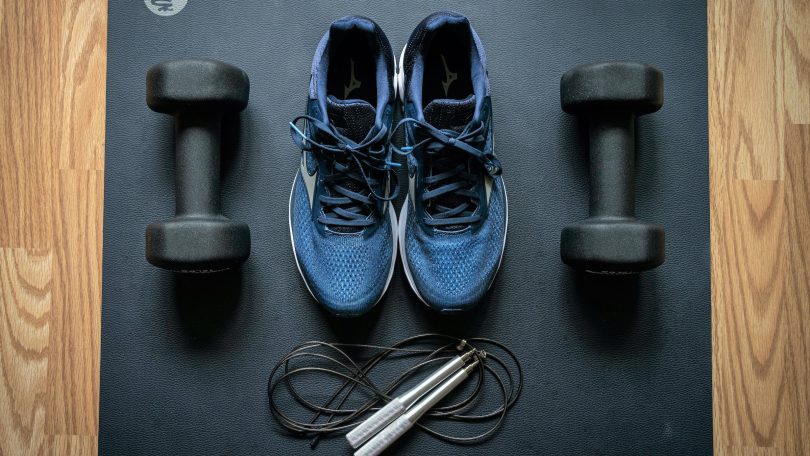Introduction:
Achieving optimal results from your training sessions requires more than just hard work. It also demands an understanding of the science behind effective training methodologies. In this article, we will explore 24 research-backed hacks that can help you maximize your training efforts and attain better results. By implementing these strategies, you can enhance your performance, improve fitness gains, and reach your goals more efficiently.
-
Set Clear and Specific Goals:
Research shows that setting clear and specific goals significantly improves training outcomes. Define measurable objectives that are challenging yet attainable. Breaking down long-term goals into smaller, short-term milestones can help maintain motivation and provide a sense of accomplishment along the way.
-
Follow Periodization:
Periodization is a training technique that involves dividing your training program into distinct phases, each targeting different aspects of fitness. Research suggests that periodized training promotes better adaptations and prevents plateaus. Structured periods of high-intensity training, recovery, and skill development can optimize performance gains.
-
Embrace High-Intensity Interval Training (HIIT):
HIIT involves short bursts of intense exercise followed by periods of rest. It has been extensively studied and shown to be highly effective in improving cardiovascular fitness, boosting metabolism, and enhancing overall performance. Incorporating HIIT into your training regimen can yield significant results in a shorter amount of time.
-
Prioritize Strength Training:
Strength training is not only beneficial for building muscle but also for enhancing overall performance. It improves bone density, increases metabolic rate, and helps prevent injuries. Research indicates that incorporating resistance training two to three times a week can lead to substantial gains in strength and power.
-
Incorporate Variation:
Training plateaus can be overcome by incorporating variation into your workouts. Research suggests that regularly changing exercise variables such as intensity, duration, and training modalities can improve fitness gains and prevent boredom. Consider trying new exercises, training methods, or incorporating cross-training to keep your workouts fresh and engaging.
-
Ensure Sufficient Recovery:
Allowing adequate recovery time between training sessions is crucial for optimal results. Research shows that during recovery, the body repairs and rebuilds tissues, replenishes energy stores, and adapts to the training stimulus. Overtraining can lead to decreased performance, increased risk of injury, and compromised immune function. Prioritize quality sleep, incorporate rest days, and listen to your body’s signals to avoid overtraining.
-
Optimize Nutrition and Hydration:
Proper nutrition and hydration play a vital role in supporting training adaptations and maximizing performance. Research suggests that consuming a well-balanced diet rich in lean protein, complex carbohydrates, and healthy fats can fuel workouts and aid in recovery. Stay adequately hydrated before, during, and after training sessions to optimize performance and prevent dehydration.
-
Track and Monitor Progress:
Monitoring your progress is essential for evaluating the effectiveness of your training program. Research shows that individuals who track their workouts and progress are more likely to achieve their goals. Use tools such as workout logs, fitness apps, or wearable devices to monitor metrics such as heart rate, duration, intensity, and strength gains.
-
Seek Professional Guidance:
Working with a qualified fitness professional or coach can provide invaluable guidance and personalized training programs. Research indicates that individuals who receive professional guidance are more likely to adhere to their training regimens and achieve better results. An expert can tailor your program, provide feedback, and ensure proper form and technique.
-
Stay Motivated and Enjoy the Process:
Consistency and motivation are key to long-term success in training. Research shows that intrinsic motivation, derived from personal enjoyment and satisfaction, is more sustainable than external factors like rewards or pressure. Find activities you enjoy, train with a supportive community, set realistic expectations, and celebrate your achievements along the way to stay motivated.
-
Incorporate Mindfulness and Mental Training:
Training is not solely about physical exertion; mental fitness plays a significant role as well. Research suggests that incorporating mindfulness techniques, such as meditation or visualization, can improve focus, reduce stress, and enhance performance. Additionally, mental training exercises like goal setting, positive self-talk, and mental imagery can boost motivation and confidence.
-
Use Music to Enhance Performance:
Listening to music during workouts has been shown to increase motivation, decrease perceived effort, and improve performance. Research indicates that synchronous music, matching the beat to exercise tempo, provides the greatest benefits. Create playlists with energizing songs that resonate with you to enhance your training experience.
-
Engage in Active Recovery:
While rest days are crucial, engaging in active recovery activities can aid in faster recovery and improve overall performance. Light exercises, such as walking, yoga, or swimming, promote blood flow, reduce muscle soreness, and enhance flexibility. Active recovery can also help prevent muscle imbalances and maintain motivation during periods of lower-intensity training.
-
Utilize Technology and Apps:
Leverage the power of technology to optimize your training experience. Fitness apps, wearable devices, and online platforms offer features like workout tracking, personalized training plans, and social support. Research suggests that using technology in training can enhance self-monitoring, accountability, and adherence to exercise programs.
-
Practice Proper Form and Technique:
Maintaining proper form and technique during exercises is crucial for maximizing results and preventing injuries. Research shows that performing exercises with correct alignment and biomechanics optimizes muscle activation and minimizes stress on joints. Seek guidance from a fitness professional or use instructional videos to ensure proper form in your training routine.
-
Utilize Peer Support and Accountability:
Training with a partner or joining a fitness community can provide valuable support and accountability. Research suggests that exercising with others can increase motivation, adherence to training programs, and overall enjoyment. Engage in group workouts, join fitness classes, or find a workout buddy to keep each other accountable and motivated.
-
Implement Active Warm-Up and Cool-Down:
Proper warm-up and cool-down routines are essential for injury prevention and optimal performance. Research shows that dynamic stretching and activation exercises during warm-up increase muscle flexibility and improve neuromuscular coordination. Similarly, incorporating static stretching and gentle movements during the cool-down phase aids in muscle recovery and reduces post-workout soreness.
-
Prioritize Sleep and Recovery:
Quality sleep is a critical factor in training success. Research indicates that sleep deprivation negatively impacts performance, recovery, and cognitive function. Aim for seven to nine hours of uninterrupted sleep per night to support muscle repair, hormone regulation, and mental well-being. Establish a consistent sleep schedule and create a sleep-friendly environment for better recovery.
-
Incorporate Functional Training:
Functional training involves exercises that mimic real-life movements and improve overall functionality. Research suggests that incorporating functional movements, such as squats, lunges, and core exercises, enhances muscular strength, joint stability, and coordination. Functional training can improve performance in daily activities and sports-specific movements.
-
Emphasize Proper Nutrition Timing:
Research indicates that nutrient timing, the strategic intake of nutrients around workouts, can enhance training adaptations and recovery. Consuming a balanced meal or snack with a combination of protein and carbohydrates before and after workouts supports muscle protein synthesis, glycogen replenishment, and optimal recovery. Experiment with pre- and post-workout nutrition strategies to find what works best for you.
-
Practice Progressive Overload:
Progressive overload is the gradual increase in training stimulus over time to stimulate further adaptations. Research shows that systematically increasing training volume, intensity, or frequency promotes strength and muscle gains. Incorporate progressive overload principles into your training by gradually increasing weights, adding repetitions, or adjusting exercise difficulty to challenge your body.
-
Monitor and Manage Stress:
Stress, both physical and psychological, can impact training outcomes. Research suggests that chronic stress can impair recovery, hinder performance, and increase injury risk. Implement stress management techniques such as relaxation exercises, meditation, and time management to optimize your training environment and ensure well-being.
-
Consider Cross-Training:
Cross-training involves incorporating different types of exercise into your routine to target various muscle groups and prevent overuse injuries. Research shows that cross-training can enhance overall fitness, improve muscular balance, and provide mental stimulation. Engage in activities such as swimming, cycling, or yoga to complement your primary training modality.
-
Stay Updated with Research:
Scientific knowledge in the field of training continuously evolves. Stay informed by reading reputable sources, following fitness experts, and keeping up with the latest research findings. This ongoing education will help you refine your training strategies, explore new techniques, and stay ahead in achieving better results.
Conclusion:
By incorporating these 24 research-backed hacks into your training regimen, you can optimize your efforts, enhance performance, and achieve better results. Remember to set clear goals, embrace periodization, prioritize strength training, incorporate variation, allow for sufficient recovery, optimize nutrition and hydration, track your progress, seek professional guidance, and stay motivated throughout the process. By combining the science of training with your dedication and consistency, you’ll be well on your way to reaching your fitness goals.
Remember, training is a personal journey, and what works for one individual may not work for another. Experiment with these research-backed hacks, listen to your body, and make adjustments accordingly. By combining evidence-based practices with your commitment and enthusiasm, you can unlock your full potential and attain the best possible results from your training endeavors.
For more Training Hacks Click Here…








